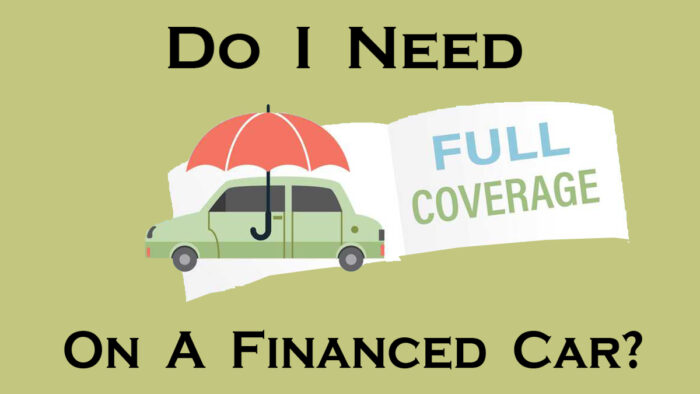Yes, you need full coverage on a financed car, regardless of whether the vehicle is a new or used one, as full coverage protects the lender financially in case of an accident, theft, and damage to the vehicle. And yes, you’ll have to first pay your deductible.

Auto loan lenders usually require full-coverage car insurance for a financed vehicle because it covers damages to the car itself. If your financed vehicle is damaged and you only have liability insurance, your insurance company will not pay for repairs or replacement of your car.
If an accident occurs and your insurance company accepts your claim, it’s because of the full coverage you have. The one listed as the lienholder on your car insurance policy will be the one to receive the check, which is your lender.
What happens if you don’t get full coverage on a financed car?
Having and maintaining full coverage for any vehicle you finance is very important. This should be done at the time of financing, and remember that it is a requirement in your contract with the lender.
Keeping full coverage is a wise thing to do. Lowering your liability insurance while you still owe money will violate the contract.
If you fail to comply with the loan contract by not purchasing full coverage, the lender may have to cancel your auto loan and then claim ownership of your vehicle.
Better still, the lender can insure the vehicle by themselves by getting forced-placed insurance. To avoid such, ensure to always adhere to the lender’s insurance requirements as stated in your contract.
Does auto insurance go down once a car is paid?
Paying off your car loan doesn’t lower your auto insurance rates automatically, but it does give you the chance to move around to check out different coverage options, which makes you save more money.
Once your loan is paid off, remember to remove the lender as your lienholder on your policy. Do so by contacting your insurance company. After the lender has been removed as your lienholder, the payments come directly to you instead of being routed to your lienholder.
It’s important to work with a trusted insurance provider, as navigating insurance options can be difficult, especially after paying off your loan.
What happens if you get into an accident with a financed car?
If you’re involved in an accident while driving a financed car, ensure that you have full coverage, as required by lenders. Check your coverage and its active policy status, especially if you’ve missed payments, as insurance companies may cancel policies due to non-payment.
With full-coverage insurance, you’ll receive financial assistance up to your policy limits after paying your deductible. This includes covering damages, injuries caused to others, and lawsuit expenses.
In the case of a total loss, where the repair cost exceeds the car’s value, you and your lender will receive a payment equal to the vehicle’s actual cash value.
Frequently asked questions
What does full-coverage car insurance include?
Full coverage typically includes both comprehensive and collision coverage, along with liability insurance. It protects against damage to your car, theft, and damage to other vehicles or property.
Can I opt for liability-only insurance on a financed car?
No, most lenders require full coverage insurance for financed vehicles to ensure adequate protection for the car.
How much full-coverage car insurance do I need for a financed car?
Your lender may specify minimum coverage limits, but it’s generally recommended to have adequate coverage to protect your vehicle and meet your state’s requirements.
What happens if I don’t get full coverage on a financed car?
Your lender may force you to purchase insurance, which is usually more expensive and offers less protection than a policy you choose yourself.
Can I drop full coverage once my car is paid off?
Yes, once you’ve paid off your car loan and own the vehicle outright, you can opt for lower levels of coverage or liability-only insurance.
Does full-coverage car insurance cover damage from natural disasters?
Yes, full coverage includes comprehensive coverage, which typically protects against damage from natural disasters, theft, vandalism, and more.
Is full-coverage car insurance more expensive?
Full-coverage insurance tends to be more expensive than liability-only insurance due to the additional protection it provides for your vehicle.
Can I get discounts on full-coverage car insurance?
Yes, many insurance providers offer discounts for safe driving, bundling policies, installing safety features, and more.
How do I find the best full-coverage car insurance for a financed car?
Compare quotes from different insurance providers, review coverage options, and consider working with an insurance broker to find the best policy for your needs.



